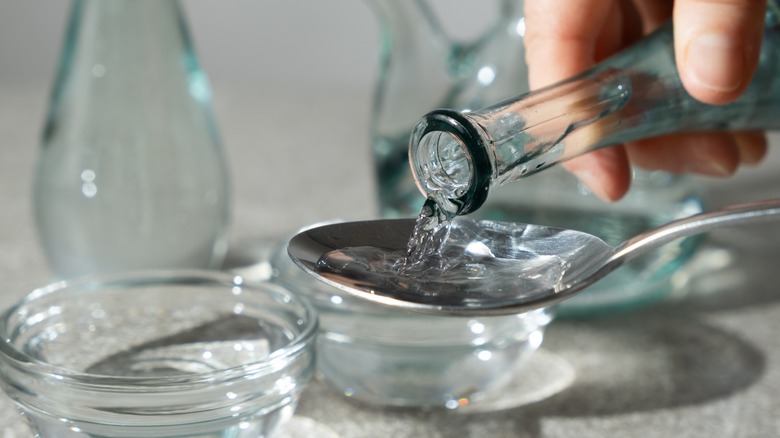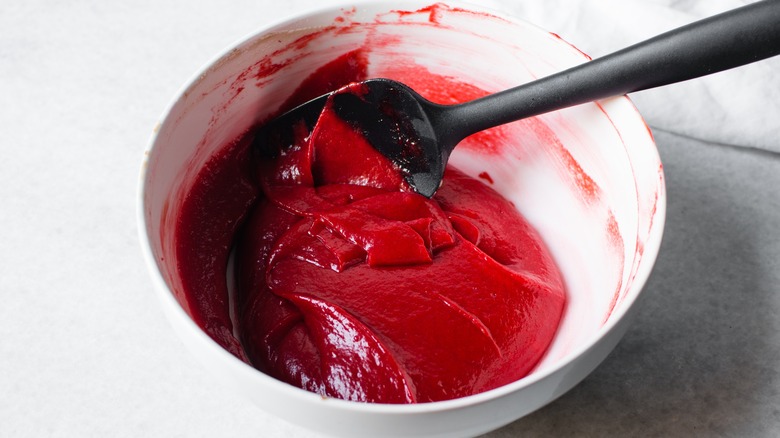Why Adding A Splash Of Vinegar To Cake Batter Might Be The Best Baking Hack
There are a number of mistakes you might make when baking a cake, especially if you're a novice baker. But then there are baking hacks that seem so preposterous that you can't imagine they would actually work. While the addition of mayo might make sense as a hack for incredibly moist cake, adding a bit of vinegar to your batter sounds outlandish, right? According to Laura Kanya, research and development chef at Ann Clark Ltd., with whom Food Republic had the opportunity to speak, "Vinegar inhibits gluten development, resulting in a more tender crumb." This is why some experts recommend adding it to your bread dough too.
Kanya continued, "It also interacts with baking powder as a leavening agent to help it to reach its full potential, resulting in a loftier cake with a tender, moist crumb." Kanya also mentioned that the interaction creates "carbon dioxide, which helps the cake rise." It's all about chemistry! But vinegar has such a sharp, sour taste — won't it ruin the flavor of your cake? Actually, no: The way vinegar reacts to the baking powder (or soda) dissipates its flavor, though you do have to be careful not to include too much vinegar. Some recipes that call for the inclusion of vinegar may use as much as two or three tablespoons.
Which cakes work best with a splash of vinegar
Some cakes are better suited to having a little vinegar added to them than others. "The type of cakes that contain cocoa can benefit from having white vinegar or apple cider vinegar added in small quantities to help react with the acid in the cocoa and baking soda," said Laura Kanya. Yes, you heard that right: Cocoa powder is actually acidic (and therefore, so is chocolate). "Different types of cocoa powder have different levels of acidity," Kanya explained. "Natural cocoa powder has the highest acidity, and black cocoa powder has the lowest acidity, with Dutch-process cocoa falling in the middle." Dutch-process cocoa's pH level is actually the same as water.
This applies to many chocolate cakes, which means it also applies to homemade red velvet cakes since they traditionally include a small amount of cocoa powder as well as additional acid for lift from buttermilk. And as for box cake mixes, vinegar might be best added to those that contain non-alkalized cocoa powder; if you can find any, that is, since most of the mass-produced cake mixes on supermarket shelves do contain Dutch-process or processed-with-alkali cocoa. Organic cake mixes are going to be your best bet.


